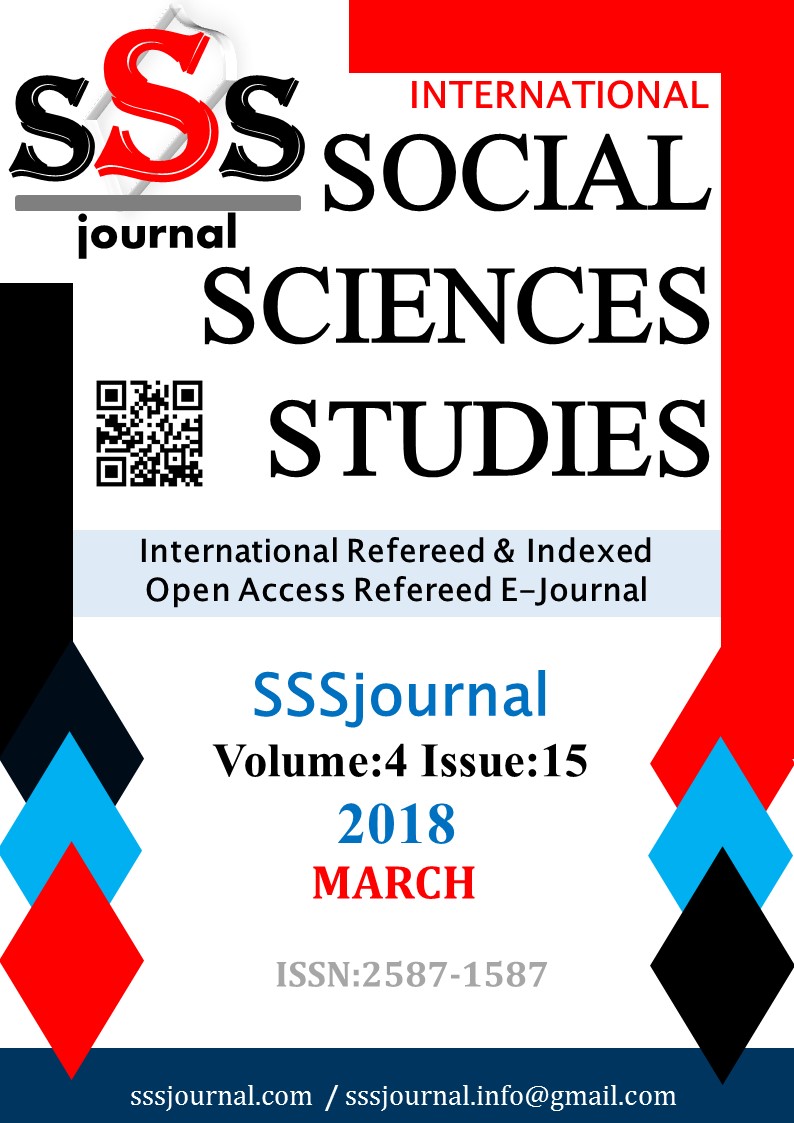Author :
Abstract
Günümüzde ulus devletler, birçok farklı değişimin ve dönüşümün yanısıra teknolojinin de çok hızlı değiştiği bir dönemden geçmektedirler. Bu hızlı değişim, insanlara bilgiye ulaşma konusunda oldukça geniş imkanlar sağlamaktadır. Dünyanın herhangi bir yerinde yaşanan olaylar, bambaşka coğrafyalarda yaşayan insanlar tarafından da eş zamanlı olarak takip edilebilmektedir. Bu bağlamda, bilginin dönüşümü, başka bir ifadeyle bilginin üretilmesi sadece ulus devletlerin kontrolünde olmaktan çıkmıştır. Bağımsız aktörler ve birimler bu dönüşüm ve oluşum sürecinde bir rol oynamaya oldukça isteklidirler. Bu aktörler ve birimler genel olarak devlet dışı kuruluşlar olarak tnaımlanabilir. Bu çalışmada esas olarak, farklı devlet dışı kuruluşlarda çalışan uzmanlarla derinlemesine mülakat tekniğiyle yapılan görüşemelerden yola çıkarak bu kuruluşların Türk dış politikasındaki karar alma mekanizmalarına herhangi bir katkısı olup olmadığı sorunsalı üzerinde durulmuştur. Böylelikle süreçte herhangi bir katkı veya rollerinin olup olmadığı anlaşılmaya ve anazli edilmeye çalışılmıştır.
Keywords
Abstract
The nation states are in a phase of fast-changing technology environment. The speed of technological transformation is enabling people to reach information whether true or false very quickly. What happens in a certain geography of the world is immediately heard also by people in other parts of the world. In this context, the transformation of information to knowledge, in other words, the production of knowledge is no longer under the sole authority of the nation state. Independent actors and agencies are eager to play a role in this process, too. Those actors and agencies can be defined as non-governmental organizations in broader sense. This paper is based on the field research of the author, conducted in 2012 in Ankara with experts working in different think-tanks. In this study, it has been conducted in-depth interviews with the expertise working in different NGOs regarding their influence and role in Turkish foreign policy decision making process. It was aimed to understand and analyze whether the agencies have a role or not in the process.
Keywords
- Abelson, D. E. (2002). Think tanks and US foreign policy: an historical view. US Foreign Policy
- Abelson, D. E. (2002). Think tanks and US foreign policy: an historical view. US Foreign Policy Agenda, 7(3), 9-13.
- Aydın, A. (2006). “The Genesis of Think-Tank Culture in Turkey: Past, Present and Future?”, Master Thesis, Middle East Technical University Gradute School of Social Sciences, Ankara.
- King, G., Keohane, R. O., & Verba, S. (1994). Designing Social Inquiry: Scientific inference in qualitative research. Princeton University Press.
- McGann, J.G., “Think Tanks and the Transnationalization of Foreign Policy”, U.S. Foreign Policy Agenda: An Electronic Journal of the U.S. Department of State, Vol.7, No.3 (November 2002).
- Rich, A. (2005). Think Tanks, Public Policy, and the Politics of Expertise. Cambridge University Press, Cambridge.
- Seta Araştirma Merkezlerinin Yükselişi: Türkiye’de Diş Politika Ve Ulusal Güvenlik Kültürü, SETA Yayınları XI, I. Baskı: Kasım 2010, ISBN: 978-605-4023-09-7.





